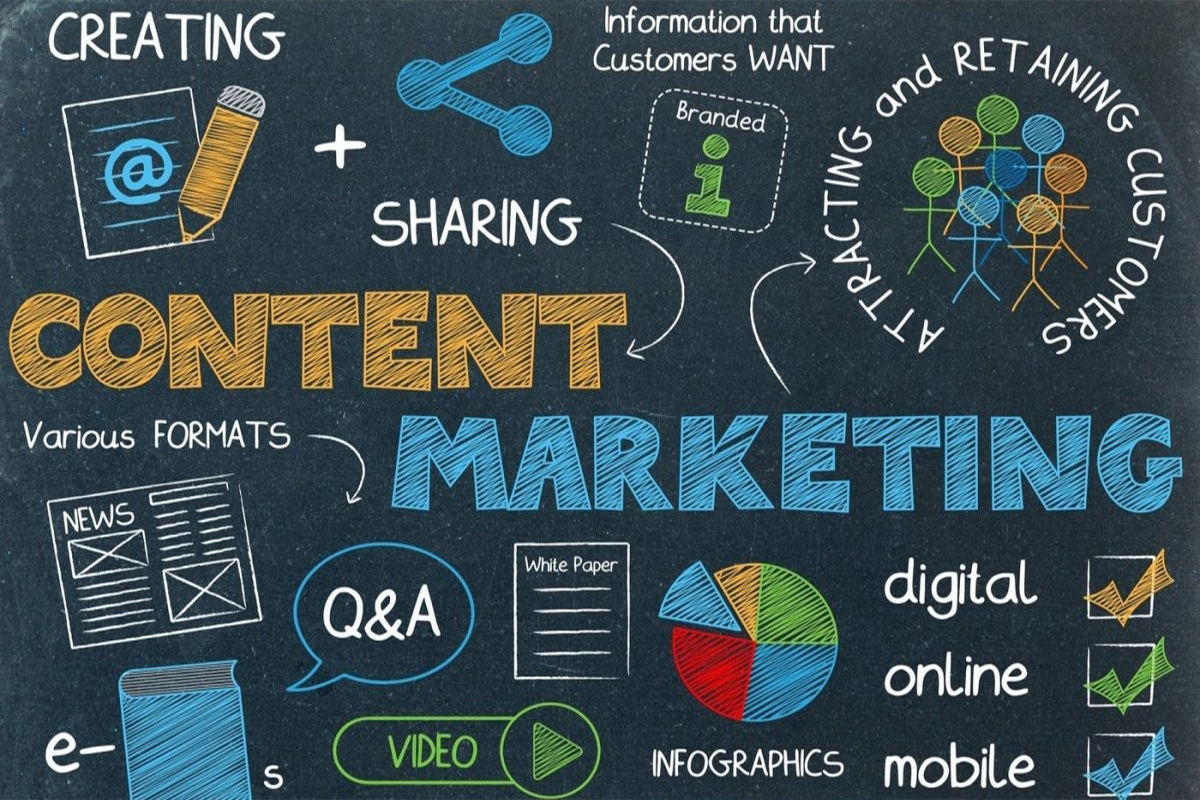
In today’s crowded digital landscape, people are bombarded with ads, but they still crave value. That’s where Content Marketing comes in. Instead of pushing products, it pulls customers in with helpful, relevant, and engaging content.
Whether you’re a small business or a big brand, content is the foundation of lasting relationships and organic growth.
💡 What is Content Marketing?
Content Marketing is a strategic approach to creating and distributing valuable, relevant, and consistent content to attract and retain a clearly defined audience—and ultimately, drive profitable customer action.
It includes blog posts, videos, social media, podcasts, infographics, newsletters, eBooks, and more.
🎯 Why Content Marketing Matters
🤝 Builds Trust & Authority
High-quality content positions you as an expert in your field.📈 Improves SEO & Organic Traffic
Google loves fresh, keyword-rich content that answers user questions.💬 Boosts Engagement & Loyalty
Stories, tips, and insights keep your audience coming back for more.💸 Generates Leads & Sales
Content guides customers along their journey—from awareness to decision.
🧩 Types of Content Marketing
1. Blogs
Great for SEO and in-depth education.
Example: “10 Tips for Choosing the Right Digital Agency”
2. Videos
Highly engaging; perfect for tutorials, testimonials, and storytelling.
Platforms: YouTube, Instagram Reels, TikTok
3. Infographics
Visually simplify complex data or processes.
Ideal for sharing on social media or in presentations.
4. Social Media Content
Short-form content that entertains, informs, or inspires.
Boost brand personality and community engagement.
5. Email Newsletters
Keep your audience updated with tips, news, and offers.
Builds direct and loyal connections.
6. eBooks & Guides
Offer in-depth value in exchange for emails (great for lead generation).
🛠️ How to Create an Effective Content Marketing Strategy
Know Your Audience
Create buyer personas to understand their needs and interests.
Set Clear Goals
Examples: Increase traffic, build awareness, generate leads.
Choose the Right Formats
Align content type with audience preferences and platform strengths.
Create a Content Calendar
Plan and schedule posts consistently across channels.
Optimize for SEO
Use keywords, meta descriptions, and internal links.
Promote Your Content
Share across email, social media, ads, and partnerships.
Track & Improve
Use tools like Google Analytics, HubSpot, or SEMrush to monitor results.
Conclusion:
Content marketing is not about selling—it’s about helping. When you consistently offer value, customers come to trust your brand, engage more, and buy more.
“Stop selling. Start telling stories.”
